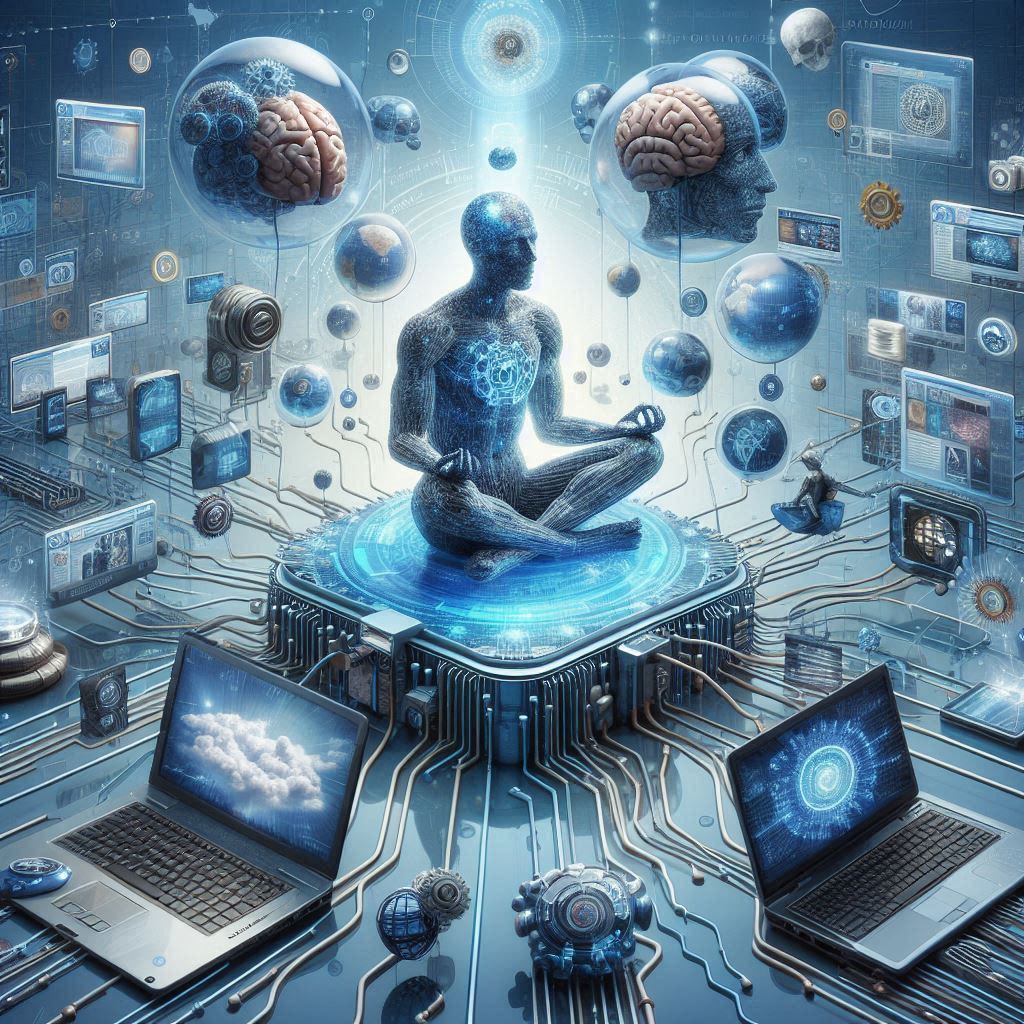In the digital age, the internet has transformed how we store, recall, and interact with autobiographical memories. The advent of social media platforms, digital photo albums, and various online diaries has revolutionized the way we document our lives, providing new tools for memory preservation and recall. This transformation raises intriguing questions about the nature of memory, identity, and the potential consequences of relying on digital means for autobiographical recollection.
The Nature of Autobiographical Memory
Autobiographical memory is the recollection of events and experiences from one's own life. These memories are integral to our sense of identity and personal history. Traditionally, they have been stored in the brain, reconstructed through a complex interplay of neural processes involving the hippocampus, prefrontal cortex, and other brain regions. Memories are not static records; they are dynamic, often changing and evolving over time. The way we recall and narrate our past can be influenced by various factors, including our current mood, subsequent experiences, and social context.
The Internet as an External Memory Source
The internet offers a vast external repository for autobiographical memories. Social media platforms like Facebook, Instagram, and Twitter serve as digital diaries where users document their lives in real-time. Photos, status updates, and tweets create a detailed archive of personal history, readily accessible at any moment. This digital record can supplement and, in some cases, alter our natural memory processes.
One significant advantage of this external memory source is its permanence and accessibility. Unlike human memory, which can fade and distort over time, digital records remain largely unchanged. They provide a concrete reference that can help validate or challenge our subjective recollections. For instance, looking back at a photo album on Facebook can bring clarity to hazy memories, reinforcing certain aspects of the past while potentially altering the emotional tone associated with them.
The Role of Social Media in Memory Construction
Social media not only serves as a storage space for memories but also plays a crucial role in how memories are constructed and recalled. The act of sharing an experience online often involves a degree of curation and narrative construction. Users tend to highlight positive experiences, milestones, and achievements, creating a curated version of their lives. This selective sharing can influence how individuals remember their past, emphasizing positive memories and potentially diminishing the salience of negative ones.
Moreover, the feedback loop created by likes, comments, and shares can reinforce certain memories. Positive reinforcement from social interactions can make specific events more memorable, shaping the narrative of one's life in a way that aligns with the approval and validation of their social network. This phenomenon can lead to a more socially desirable version of autobiographical memory, one that is influenced by external validation as much as by internal recollection.
Digital Amnesia and Memory Reliance
While the internet provides numerous benefits for autobiographical memory, it also introduces the concept of digital amnesia. This term refers to the tendency to forget information that is easily accessible online. A study conducted by Kaspersky Lab found that many individuals rely on their digital devices to remember information for them, resulting in poorer recall of details that are stored online. This reliance on digital memory aids can extend to autobiographical memory, where people might become less adept at recalling personal experiences without the aid of their digital records.
The implications of digital amnesia are profound. As we become more dependent on digital records, our natural memory processes may atrophy, potentially leading to a diminished ability to recall past events without external aids. This reliance raises concerns about the long-term effects on cognitive function and the authenticity of personal memories.
Privacy Concerns and Memory Ownership
The use of the internet for storing autobiographical memories also raises significant privacy concerns. Social media platforms and other online services collect vast amounts of personal data, which can be vulnerable to breaches, misuse, and exploitation. The question of memory ownership becomes pertinent: who owns the digital records of our lives? The individual who created them or the platform that stores them?
Moreover, the permanence of digital records means that memories can be retrieved and scrutinized long after the events have passed, sometimes leading to unintended consequences. For example, a post made in adolescence could resurface years later, impacting personal or professional opportunities. The digital footprint we leave behind can become a double-edged sword, offering both a rich archive of our past and a potential source of vulnerability.
Conclusion: Navigating the Digital Memory Landscape
The internet's role in autobiographical memory is a double-edged sword. On one hand, it offers unprecedented tools for documenting and recalling our lives, providing a rich, accessible archive that can enhance our natural memory processes. On the other hand, it introduces new challenges related to digital amnesia, privacy, and the authenticity of our recollections.
Navigating this digital memory landscape requires a balanced approach. Embracing the benefits of digital memory aids while remaining mindful of their potential drawbacks can help us preserve the integrity of our autobiographical memories. As we continue to integrate digital tools into our daily lives, it is essential to reflect on how they shape our understanding of the past and our sense of identity. Ultimately, the interplay between natural and digital memory processes will continue to evolve, offering new insights into the nature of memory and the human experience in the digital age.
This manual is also useful on the following topics: -
#AutobiographicalMemory
#DigitalMemory
#SocialMedia
#MemoryStorage
#MemoryRecall
#DigitalAmnesia
#MemoryAndIdentity
#OnlinePrivacy
#MemoryConstruction
#DigitalFootprint
#SocialMediaDiary
#MemoryPreservation
#MemoryTechnology
#DigitalLife
#PersonalHistory
#MemoryOwnership
#DigitalRecords
#MemoryEvolution
#MemoryCuration
#DigitalArchive
#MemoryAndTechnology
#MemoryReliance
#DigitalIdentity
#MemoryAndSociety
#MemoryImplications
Follow 📌✅
INSTAGRAM https://www.instagram.com/amoltechnicalguru?igsh=ZGoyeWU3d25sZWEw

